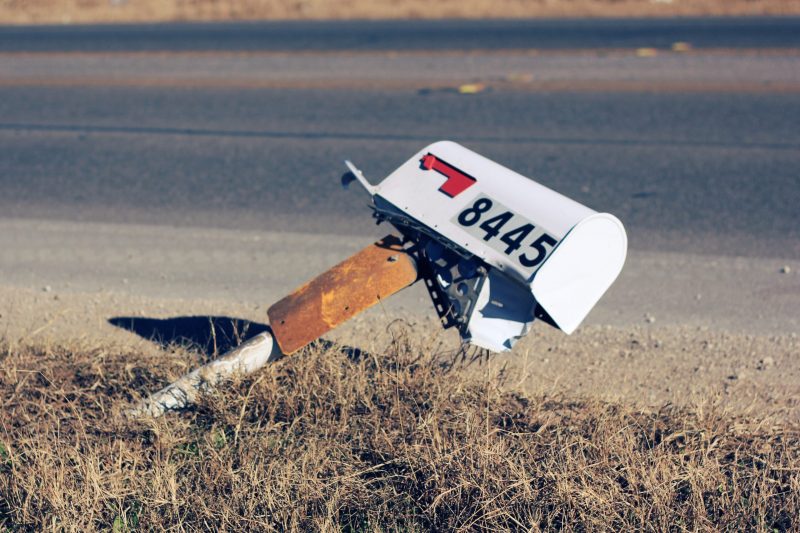Quality and responsibility
Who is responsible for quality?
Responsibility : A vague concept if there is such a thing.
This is one of the dream scenario in every manager’s mind : ah, that my employees would be responsible for their action.
Almost a phantasm.
Why is it such a difficult concept to inculcate in an employee’s mind?
I wonder however if the blame should be reversed : what if the manager herself or himself is responsible for this lack of responsibility from their employees’ part ?
Here is a real life story, only the names have been modified to spare anybody self-esteem.
I was recently doing my weekly grocery.
Hmm.. let me rephrase this.
One was recently doing his weekly grocery.
As it happens, one mistakingly purchased the wrong kind of tomato soup. As one frequently and inadvertently buys the wrong item from the list, one is used to the “exchange” policy in most grocery store. One is also used to the almost-anaphylactic shock one ’s such mistake causes into one’s spouse.
Grocery store procedures for exchanges are dangerously close to the edge of being ridiculous. In all cases you need a proof of purchase. One was told it was necessary because some people bring back unwanted items from previous grocery experiences in search of a refund.
One then has to explain in shame why the wrong kind of tomato soup was selected from the shelves and admit at not being overly aware of the difference between the “grand-mother “ type and the “regular” type of tomato soup ( although one suspects there are the same salted goo…). One has sometimes to fill in the exchange form, write one’s name, address and phone number in case a grocery auditor decides to phone back and inquire if one’s mistake was resolved to one’s satisfaction or maybe to double check on the expiry date on the can….how can one know??
Then, one has to be given the permission to go fetch the right kind of tomato soup.
Upon returning, one has to wait again to be served.
Oh, one is pretty fed up with the use of « one » so …
Then I have the surprise to learn that the employee does not have the permission to allow the exchange (of the same priced tomato soup can!), because, I have to understand and be sympathetic to the employee’s plea, the supervisor is the only one allowed to perform the complex 3.87 $ exchange process.
After an unexpected waiting period of 8 minutes, the supervisor, who had been called via the intercom 8 minutes ago and was busy packing another customer’s 5 bags of grocery, was told verbally by the original employee that I was waiting and that the employe should finish the packing while the supervisor was finally processing the complex exchange….
The supervisor then proceeded to scan separately the 3 cans of soup to remove them form inventory, scan the 3 “exchanged” cans (mind you, continuous improvement was in progress as she scanned only 1 can this time!), circled the time on my invoice to refrain a second exchange of the same item ( yeah, I really would have liked to do the whole thing once again….).
Total time : 12 minutes.
Total cost : aha… let break this down.
Time of the supervisor : 5 minutes
Time of the employee : about 5 minutes
My time : 12 minutes.
Benefit for the grocery store : inventory corrected instantaneously.
Financial benefit = 0$ however.
Impact : none for the store. The same inventory correction done after-hours would have allowed the store the same benefit.
Impact on my satisfaction : apart form the bewilderment of such a ridiculous procedure I was inspired to tell one’s story and learn from it. But, really, I was pissed out of my mind!
Impact on the employee : yet another confirmation that her supervisor and the management in general had no faith or trust in her whatsoever. After all, why trust an employee for a 3.87$ exchange!!!
Was the employee able to perform the task ?
YES.
Was the whole process beneficial for the store, its employees, its productivity ?
NO.
Was the employee responsible for this situation ?
NO.
Could the employee have decided to actually allow one to exchange the 3 cans, circle one’s invoice ( not initialed nor dated by the way) and facilitated the process ?
YES.
What are the chance this employee would have been reprimanded afterward?
Unfortunately, high enough.
Was the employee aware of this?
Probably. And it is probably why we have such ridiculous processes in our grocery stores. Management does not trust its employee to take the right actions, the right decision because, once in a while a mistakes is bound to happen.
Overall such mistakes are small and contribute, if managed adequately, to improve the processes and to develop employees.
A few questions now :
- How many times did you see a situation similar to the one described above ?
- How many times were you responsible for such a situation ?
- How many times did you decide to do the right thing in spite of rules telling you otherwise?
- How many situations could be dramatically improved if we were to go back to the essence of the rules instead of the letter of the law/rule/regulation/norm ?
- Do your managers define clearly the level of authority given to each and everyone in your organizations?
- Or do they simply and naively implore everyone to become more responsible?
Responsibility comes from action. How can anyone be responsible if the range of actions is limited in such a way that no one can actually do anything meaningful or impactful?
Do YOU ask for your manager to define clearly the authority associated to your position or do you simple assume that you have no authority at all ?
I frequently quote a wise man who once said (can’t remember who…) that one becomes aware of one’s own limit only when one goes beyond them. (for some reason, William Shatner comes to mind…)
I also add that it is preferable to ask forgiveness instead of waiting for permission.(Grace Hopper)
I also frequently tell my clients that authority is taken, not requested.
As little kids we were always testing our limits. Always trying to expand them.
As little kids we rarely took “no” for and answer …at least not the first 12 times.
As little kids we had yet to understand all the rules of the “adult” world and kept asking “Why ?”
Growing up does not seem to be the same as becoming wiser.
Ah well… it looks like I will continue to go to the same grocery story for a while. After trying repeatedly to entice the owner to come to my leadership discussion groups, I stopped trying. Begin told time and time again that the head office provide him with too much training anyway ( yep… it seem to be working just fine!) I decided to stop trying.
Yes, I am becoming an adult, I do not wait 12 times before stopping to try to get my candy.
But then, growing up does not always mean getting wiser.
Oh damn, I purchased the wrong kind of soup again!!
Photo by Paweł Czerwiński on Unsplash29
© Copyrighted material Aliter Concept™ 2019. Please do not print or copy without permission from the author.
BUT DO SHARE IT using the social network buttons !!
ARTICLES RÉCENTS
4 mars 2021
Sévices postaux mésadaptés
Réflexion de qualité,Aliter Sensa
Mars 2021. Une année de pandémie et de restrictions sanitaires. Un an où la planète a appris à…
28 janvier 2020
Quelles sont les conditions de votre situation ?
Réflexion de qualité,Aliter Sensa
Quelles sont les conditions de votre situation? Question simple et efficace. Pourquoi l'oublie-t-on…
5 décembre 2017
La grenouille et le tai-chi
Réflexion de qualité,Biologie organisationnelle
La grenouille et le taichi... encore un titre sauté! Pratiquer le tai-chi est un défi. Bien le…
17 octobre 2017
Gérer le contexte et non le texte con
Réflexion de qualité,Biologie organisationnelle
Gérer le contexte et non le texte con. Non, pas un mauvais jeu de mots. Je suis abonné à…




